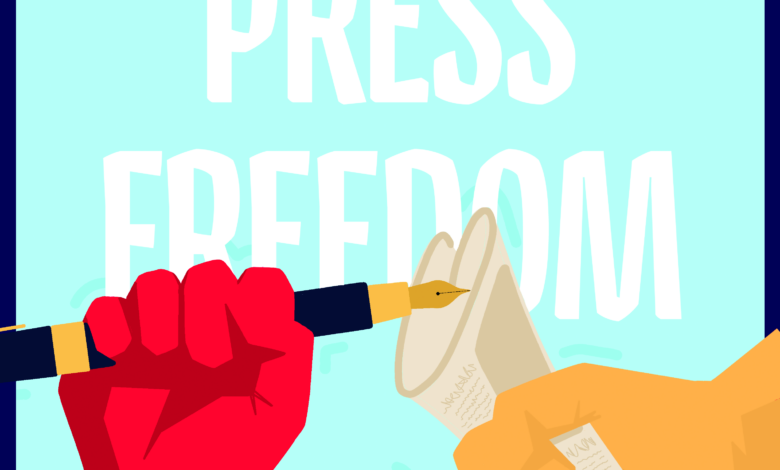
Student Press Freedom Day and why it matters
By Amethyst Martinez
The power of persistence is far bigger than we can imagine.
As Student Press Freedom Day celebrates its sixth year under the theme ‘Powerfully Persistent,’ I reflect on all the work I have done as a journalist during my time in college.
Since I have started at my school newspaper “The Rider News,” we have broken stories on some of the most important topics to our campus community: university wrongdoings, student struggles, historical moments and so much more.
How did we do this?
The power of persistence and its role in journalism. I always tell my peers, continue persisting, despite hurdles. Those are where the powerful stories lie.
If it were easy, I say, everyone would do it.
The role of student press at universities is unrecognizable at times. It seeps into our student life and holds the university accountable for what students, just like you and me, are paying for.
However, there are times when its importance is painfully obvious.
College newspapers across the country have had to cover some of the hardest-hitting journalism there is: school shootings, on-campus protests, sex-crime scandals, massive fund mismanagement, the COVID-19 pandemic’s effect on higher education and more.
Student journalists do this all while reaping the disadvantages, alongside their peers. They do this while attending school full-time. Many also have jobs.
All that we strive for is accountability amongst our university, and doing that may be some of the hardest work we do in our journalistic careers.
Student press freedom and the Supreme Court
In 1965, Mary Beth Tinker, John Tinker and Chris Eckhardt, three Iowa students, wore armbands to school to protest the Vietnam War.
After their school suspension for wearing the armbands, the students took the district to court with the help of the American Civil Liberties Union. It wasn’t until Feb. 24, 1969 when the Supreme Court heard the case after multiple lower court dismissals that it was ruled: students do not shed their constitutional rights, including freedom of speech or expression, when they go to school.
This year’s Student Press Freedom Day takes place on Feb. 22, two days before the 55th anniversary of the ruling Tinker v. Des Moines.
However, in 1988, in the Supreme Court ruling Hazelwood School District v. Kuhlmeier, certain student press rights were affected after it was ruled that student expression could be censored “where school officials demonstrated a reasonable educational justification and where their censorship viewpoint was neutral,” according to the Student Press Law Center.
Here at Rider, we are relatively lucky with the treatment we receive from our university as student journalists, especially at a private institution.
Other universities, however, have attempted to silence student journalists, even when the community needs the reporting the most.
The oppression of student voices can be incredibly damaging, and is shown throughout history to be a defunct practice.
Here’s why you should care: the freedom of the press is one of the most important strongholds in the United States, and student journalists are no exception to that.
In order for others to be free, journalists must also be.
This Student Press Freedom Day, all that I ask for is that student journalists are respected and recognized for their work.
I ask that we be taken seriously, and are given the opportunity to do our job without hurdles that make it increasingly difficult.
I ask that you treat student journalists with kindness, because sometimes, we aren’t.
We are first and foremost students — young people gathering information for the greater good of our community, and learning along the way.
Lastly, I ask for all student journalists, and everyone reading, to know their rights — it’s the most empowering thing you can do. Advocate for yourself, for your fellow reporters and for your newsroom.
Sometimes, you may be the only one.



